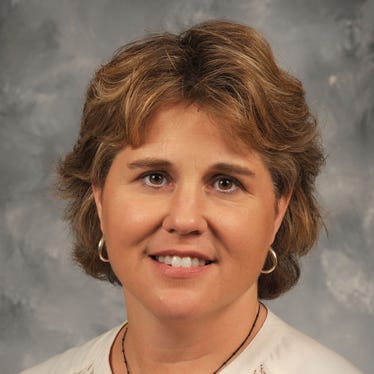June 25, 2024

While every job has stress points, few people go to work knowing they could lose hundreds of thousands of dollars in any given day.
That is a reality for many in the agricultural sector, and mental health struggles are a frequent result.
Ed and Ben Pentecost own Pentecost Brothers Catfish Farm in Doddsville, Mississippi. They have farmed catfish since the early 1980s, but exclusively since 1993 on what are now 585 acres of ponds in Sunflower County.
“There are times where I’ve wondered whether it was a worthwhile life choice to choose the catfish business because it’s so demanding day in and day out,” Ben said.
Mississippi catfish
Mississippi has almost 33,000 acres of catfish ponds. The majority are located in the Mississippi Delta in and around Sunflower County, and the rest mostly in east Mississippi near Noxubee County. The state leads the nation in catfish production, generating 65% of the U.S. supply, but catfish acreage has decreased more than 70% over the last two decades.
Ed and Ben roll with the punches of catfish production. They work daily to ensure catfish have enough oxygen, stay financially afloat when high feed costs are not offset by high market prices for their fish, manage staff, handle harvest and marketing of their product.

Mississippi has almost 33,000 acres of catfish (MSU Television Center)
Ganesh Kumar, a Mississippi State University aquaculture economist in Stoneville with the Mississippi Agricultural and Forestry Experiment Station, said catfish farming is tough physically as well as mentally and financially.
“Feed is the biggest of all the financial inputs,” Kumar said.
Feed accounts for up to half of the total cost of farming, sometimes as much as $11,000 per acre each year.
“You can just imagine the amount of money that is required to run a business in its entirety,” Kumar said.
Managing fish
On a day-to-day basis, making sure there is enough oxygen in the high-density ponds to keep catfish alive and healthy is a big concern. That issue becomes a higher priority at night when ponds do not generate their own oxygen and must be supplemented by aerators that stir the water to oxygenate it.
“We try to keep the fish in real good shape overnight because we don’t get paid for any that arrive at the plant in bad condition,” Ed said. “When the truck gets here [for harvest] … we load anywhere from 500 to1,500 pounds in a dip … We do these twice a week, year-round.”
The Pentecost Brothers story can be viewed as one of four stories in the second season of the miniseries, “On the Farm,” produced by the MSU Television Center. Each film tells the story of an agricultural worker navigating industry and personal challenges.
The films also spotlight resources and organizations that can assist producers in crisis and feature specialists from MSU in agricultural economics, family science and clinical psychology. These specialists connect the lived experiences of the farmers to scientific literature on rural and agricultural lifestyles.
Power outage
One night in 2015, a nightmare scenario unfolded for the Pentecost brothers when a downed power pole knocked out electricity to the entire area.
“The biggest risk that we have is a power outage, because we don’t have enough backup equipment to cover all of our ponds if we have a total power outage,” Ben said.
Ed said they were initially told the power would be back on in three hours, but they spent all night moving equipment around in their efforts to keep enough oxygen in the ponds.
“We were all out here playing musical chairs with our tractors-powered aerators trying to keep fish alive. We just moved around waiting on a repair that never came,” Ben said. “We estimated that we lost over 300,000 pounds of fish that night.
“That’s a level of stress that most people don’t have to face, but we’ve had things like that happen so many times that we get over it and keep going,” he said.
Other stress
Ed said they have yet to resolve another stress the brothers face.
“I don’t know what the end game will be, how we’ll ever decide to get out of this business or whether we’ll sell the ponds or rent them out or convert them to row crop,” Ed said. “I don’t know what the best alternative is there, but at some point, we’ll have to consider that we haven’t got a game plan yet.”
Ben said it’s easier to continue farming catfish than figuring out how to get out of the business.
View the Pentecost Brothers story when it airs on Mississippi Public Broadcasting’s TV channel July 1 at 9 p.m., July 5 at 7:30 p.m. and July 7 at 4:30 p.m. The entire “On the Farm” miniseries is also available at https://www.onthefarm.life.
The episode ends with the reminder that financial stress on the farm can lead to overwhelming emotions and thoughts of suicide. Help is available with a call or text to “988�” or chat at 988lifeline.org.
For information on Mental Health First Aid training, visit the Extension website at http://extension.msstate.edu/health/the-promise-initiative/mental-health-first-aid or contact the local Extension office.
Source: Mississippi State University Extension Service
Read more about:
FishAbout the Author(s)
You May Also Like






